Unit I FUNDAMENTALS OF ELECTRICAL ENGINEERING
Introduction to Electricity – Uses of Electricity in Engineering & Health care – Duties & responsibilities of Electrical Engineer
Important Terms : Electrical materials -Electrical quantities- [Charge, Current, Potential difference, DC & AC supply – Types & Difference, Power & Energy]
Basic Laws: Coulomb’s law – Lenz Law -Fleming’s rule.
Electric Components & Circuits: Simple Voltage, Current, Power & Energy calculation using Series & Parallel connection of Resistors, inductors & Capacitors using Ohm’s law only.
Unit II ELECTRICAL SYSTEMS
Power generation: Energy sources – Power stations – Block Diagram of AC transmission – Functions of TANGEDCO
Conversion of Energy: Motor, Generator and Transformer – main parts, types (names only) and uses. Different types of lamps – Simple lamp circuit – Applications of Solar PV panels – Concept of Electric Vehicles -Types – Domestic house wiring
Unit III PASSIVE COMPONENTS
Types of Electronic Components – Resistor, Capacitor and inductor – Symbol, Working Principle, Properties, Types and Uses – Colour Coding of Resistor – Self and Mutual Inductance
Unit IV FUNDAMENTALS OF SEMICONDUCTORS
Semiconductors – Energy Band, Fermi level, Intrinsic and Extrinsic Semiconductors, P-Type and N-Type Semiconductors, Drift Current, Diffusion Current.
PN Junction Diode and Zener Diode-Symbol, construction and working- Forward Bias, Reverse Bias, VI Characteristics, Applications
Unit V ELECTRICAL SAFETY, PCB AND SOLDERING
Electrical Safety: Hazards of electricity [shock, burns, arc-blast, Thermal Radiation, explosions, fires, effects of electricity on the human body] –Safety precautions – First Aid for Electrical Accidents – Protective devices– Earthing – lightning arrester
Introduction to PCB – Types, PCB Materials, Steps involved in preparation of a PCB.
Introduction to Soldering – Types of Solder, Soldering Tools, Soldering Safety precautions.






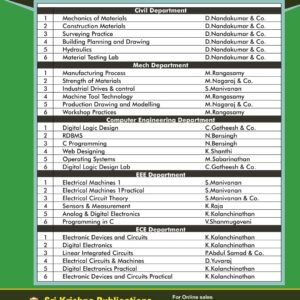


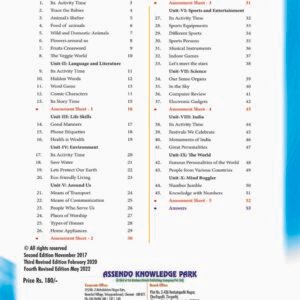


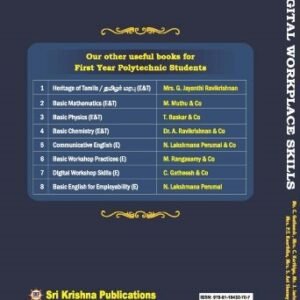
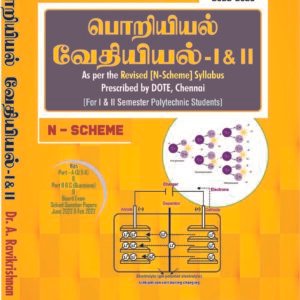

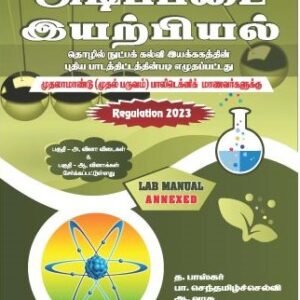

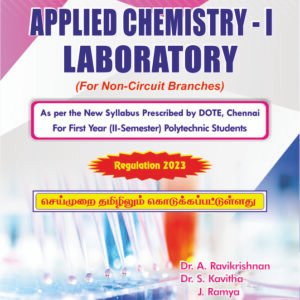
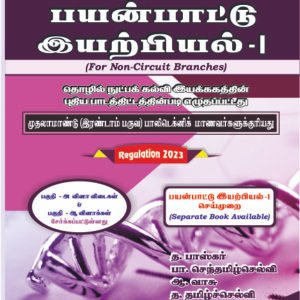
Reviews
There are no reviews yet.